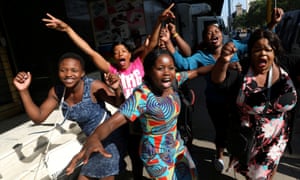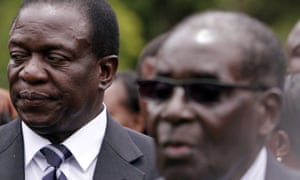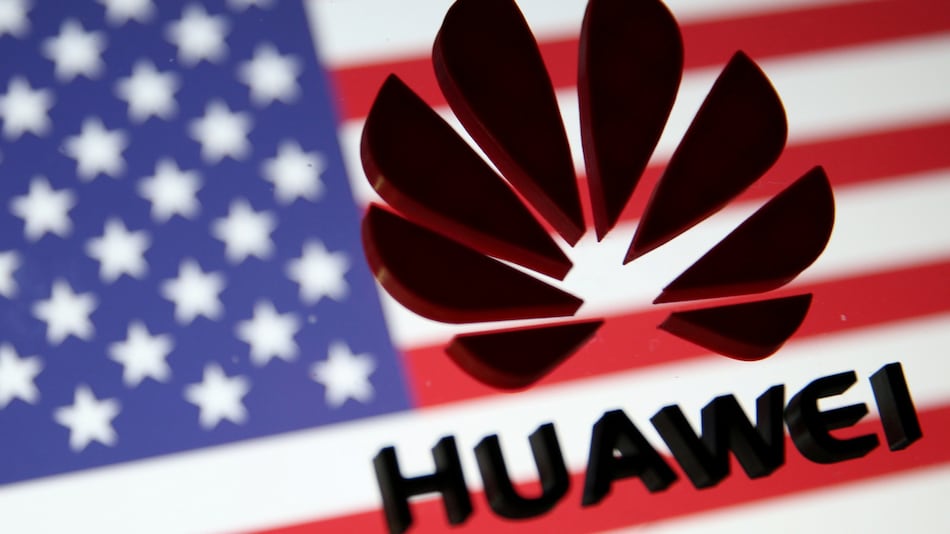 Zimbabwe’s former vice-president Emmerson Mnangagwa has returned to the country and will be sworn in as president on Friday.
Zimbabwe’s former vice-president Emmerson Mnangagwa has returned to the country and will be sworn in as president on Friday.
Mnangagwa fled for his safety to South Africa two weeks ago when he was sacked by Robert Mugabe, triggering a political crisis that culminated in the resignation of the 93-year-old autocrat on Tuesday.
Mnangagwa touched down at a military air base in Harare on Wednesday afternoon on a flight from Johannesburg. Car horns and celebrations greeted the motorcade believed to be carrying Mnangagwa as it passed t
Mugabe, who ruled the country with an iron grip for 37 years, finally caved to popular and political pressure hours after parliament launched proceedings to impeach him.
He had refused to leave office during eight days of drama and uncertainty that began with a military takeover last week.
Harare was quiet on Wednesday morning after a night of joyous celebration. Traffic was normal and many people were going to work.
“It’s a new day for Zimbabwe. We are smiling,” said Lovemore Simbeli, 19, as he sold newspapers with front pages splashed with headlines announcing Mugabe’s departure.
Attention now turns to Mnangagwa, once one of Mugabe’s closest aides and one of the most powerful officials within the ruling Zanu-PF party.
The decision to sack him was a rare tactical error by Mugabe, who appears to have wanted to clear the way to power for his ambitious but unpopular 52-year-old wife, Grace Mugabe, and her G40 faction.
It is unclear whether Mugabe and his wife will remain in Zimbabwe, where both would be seen as a potential threat to Mnangagwa or any other new leader and could face prosecution.
While there is widespread respect in Zimbabwe for Mugabe for his leadership during the brutal liberation wars of the 1960s and 1970s, the first lady is viewed differently, with many calling for her trial and imprisonment.
One option is for the Mugabe family to be allowed to fly into exile, with Dubai, Singapore or Malaysia considered the most likely destinations. The family is believed to have a substantial property portfolio overseas.
Mnangagwa, 75, issued a statement on Tuesday night congratulating the people of Zimbabwe “on reaching this historic moment.”
“Together we will ensure a peaceful transition to the consolidation of our democracy and bring in a fresh start for all Zimbabweans and foster peace and unity. As I make my way back home, I look forward together with you the people of Zimbabwe to tackle the political and economic challenges facing our beloved country,” Mnangagwa said.
The words of the former vice-president, who is known as the Crocodile, may reassure the many opposition politicians in Zimbabwe who fear elections scheduled for next year will be postponed.
Bacillia Majaya, an opposition MP, said the country needed “free and fair elections”.
Mnangagwa has been accused of leading brutal waves of repression against opponents of Zanu-PF and Mugabe.
Though he was appointed to the highest posts within the ruling party after an extraordinary meeting of its central committee on Sunday, there are some constitutional hurdles he has to clear before he can be named interim head of state. Some Zanu-PF officials say the nomination by the party on Sunday is sufficient.
Legal experts say the former spy chief is likely to be appointed a “nominee president” by ministers or, more likely, parliament. He would then be able to serve for the remaining 10 months of Mugabe’s term as president.
Mugabe, who outwitted and outlasted many opponents during his career, had appeared determined to fight on, turning a televised address to the nation on Sunday, when he was expected to announce his retirement, into a defiant description of future plans.
Faced with impeachment, however, the veteran autocrat finally ceded, sending a letter to parliament saying that his “decision to resign [was] voluntary”.
“[It] arises from my concern for the welfare of the people of Zimbabwe and my desire to ensure a smooth, peaceful and non-violent transfer of power that underpins national security, peace and stability,” Mugabe wrote.
The letter allowed him to leave office with some dignity, but it also allowed the group behind his downfall to present it as a constitutional transfer of power, rather than a change of government effected at gunpoint.

The same consideration may determine the thinking of Mnangagwa and other senior Zanu-PF leaders as they consider what to do with the former president and his wife.
“If they are forced into exile then that looks like a coup; if they are allowed to stay that looks much more like a legitimate transfer of power. So they’ll probably be allowed officially to stay but unofficially asked to leave,” said Nic Cheeseman, a professor of democracy at Birmingham University and an expert in African politics.
Mugabe’s eventual fate will reverberate across a continent where hundreds of millions of people still suffer the excesses of authoritarian rulers, are denied justice by corrupt or incompetent officials, and struggle to hold even elected governments to account.
The deal Mugabe has struck to leave power might tempt other rulers to leave before they are pushed, if he is able to protect his family and some of the assets he is thought to have accumulated while in office.
Source:-.theguardian



